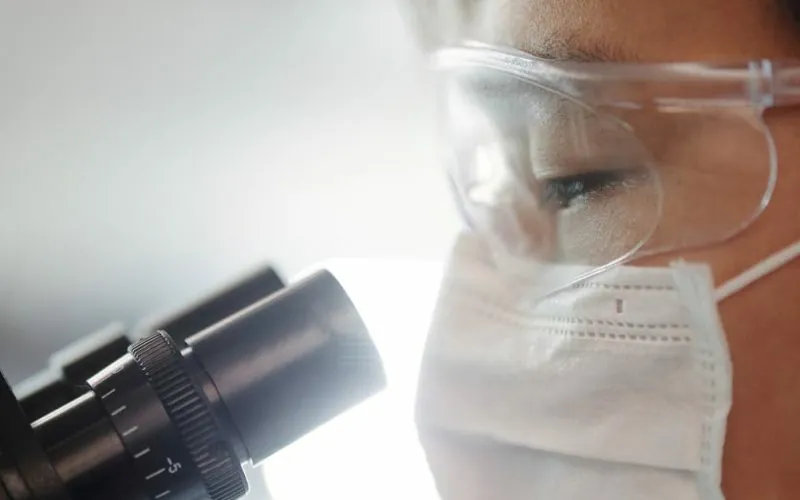Table of Contents
ToggleIn a world where medical breakthroughs seem to pop up faster than a game of Whac-A-Mole, global medical affairs plays a crucial role in keeping it all in check. Think of it as the glue that holds together the intricate puzzle of drug development, regulatory compliance, and clinical evidence. Without it, the healthcare industry might resemble a chaotic circus—complete with clowns and juggling acts that just don’t make sense.
As companies race to bring innovative therapies to market, global medical affairs ensures that scientific integrity isn’t tossed out like last week’s leftovers. It’s not just about chasing profits; it’s about delivering safe and effective solutions to patients worldwide. So, buckle up and dive into the fascinating world of global medical affairs, where science meets strategy and the stakes are higher than a tightrope walker without a safety net.
Overview of Global Medical Affairs
Global medical affairs plays a crucial role in the healthcare industry, serving as the backbone for drug development and regulatory compliance. This area ensures the alignment of clinical evidence with patient needs and scientific integrity.
Definition and Scope
Global medical affairs encompasses a wide array of responsibilities within the pharmaceutical and biotechnology sectors. It includes strategy formulation for medical education, scientific communication, and engagement with healthcare professionals. This function also extends to creating and managing clinical trial data, which informs product development and regulatory submissions. Clear lines of communication between stakeholders enhance collaboration throughout the drug development process. Overall, global medical affairs promotes a holistic approach, bridging scientific research with practical healthcare applications.
Importance in Healthcare
The significance of global medical affairs in healthcare cannot be overstated. This area contributes to the successful launch of new therapies by ensuring that safety and efficacy data reach healthcare providers and patients effectively. Medical affairs fosters relationships between pharmaceutical companies and clinical researchers, yielding valuable insights for future innovations. Scientific integrity remains paramount, guiding decisions that impact patient outcomes. Enhanced access to accurate medical information supports better healthcare delivery. Global medical affairs also helps navigate regulatory landscapes, ensuring that therapies meet local standards across various markets.
Key Functions of Global Medical Affairs
Global medical affairs play crucial roles in the healthcare industry. These functions directly impact the success of new therapies and their integration into healthcare systems.
Clinical Research and Development
Clinical research and development depend on effective data management. Global medical affairs teams oversee data from clinical trials, ensuring alignment with product development goals. They provide insights that inform strategy and drive innovation. Collaborating with researchers strengthens relationships and enhances scientific exchange. Engaging with healthcare professionals allows for the practical application of research findings in real-world settings. Ultimately, these efforts lead to improved patient outcomes and increased trust in medical advancements.
Regulatory Compliance
Regulatory compliance represents a significant responsibility within global medical affairs. This function involves navigating complex local and international regulations. Teams monitor guidelines set by agencies such as the FDA and EMA. Ensuring compliance maintains the integrity of clinical data used in product submissions. Medical affairs professionals play a vital role in preparing documents and communicating with regulators. Through these processes, they promote adherence to safety and efficacy standards, aligning with the overarching goal of patient safety in healthcare.
Strategies for Effective Global Medical Affairs
Effective strategies in global medical affairs revolve around comprehensive stakeholder engagement and knowledge dissemination. Both aspects are crucial for aligning goals and maximizing impact.
Stakeholder Engagement
Engaging stakeholders fosters collaboration and trust. He or she must identify key individuals from the pharmaceutical, clinical, and regulatory sectors. Strengthening relationships with healthcare professionals enhances the sharing of insights and data. Involvement of patient advocacy groups ensures patient perspectives inform strategies. Utilizing various communication channels facilitates ongoing dialogue, which fosters active participation and feedback. Organizations should implement regular meetings and conferences to create an open forum for discussion.
Knowledge Dissemination
Knowledge dissemination involves distributing vital information effectively. Sharing clinical trial data and scientific findings with both internal teams and external stakeholders ensures alignment and transparency. Crafting targeted communications for healthcare providers enhances understanding of new therapies. Utilizing digital platforms accelerates the spread of information, making it accessible to a global audience. Training programs for sales teams and medical science liaisons (MSLs) enhance their ability to convey accurate information. Consequently, providing continuous education fosters a culture of learning, empowering stakeholders to make informed decisions.
Challenges in Global Medical Affairs
Global medical affairs faces multiple challenges that impact its effectiveness in diverse settings. These challenges can significantly hinder the ability to ensure patient safety and effective communication.
Navigating Diverse Regulations
Navigating diverse regulations requires a thorough understanding of local laws governing medical affairs. Different markets, such as the FDA in the US, EMA in Europe, or PMDA in Japan, enforce unique compliance requirements. Medical affairs professionals must stay current with these varying regulations to maintain compliance effectively. Variations in clinical trial conduct, data reporting, and promotional practices necessitate tailored strategies for each region. Regulatory environments also change frequently, and adapting to these shifts is essential for successful product launch and integrity. Failure to comply can lead to penalties, delayed approvals, and compromised patient trust.
Cultural Considerations
Cultural considerations play a vital role in shaping global medical affairs strategies. Different regions exhibit distinct healthcare practices and communication norms. Understanding these nuances is crucial for effective engagement with healthcare professionals and patients. Medical affairs teams should tailor their communication styles to resonate with local audiences. Local customs influence the way scientific information is perceived, interpreted, and accepted. Building trust and rapport enhances relationships and nurtures collaboration. A deep appreciation of cultural contexts allows for the delivery of relevant and respectful interactions, strengthening the connection between stakeholders and healthcare organizations.
Future Trends in Global Medical Affairs
Global medical affairs continues to evolve, driven by technological advancements and shifting responsibilities within the field. Staying ahead of these trends ensures adaptability in a fast-changing healthcare landscape.
Technology Integration
Technology integration plays a crucial role in optimizing global medical affairs. Utilizing advanced analytics transforms data management, enhancing decision-making processes. Electronic health records and artificial intelligence streamline communication and data sharing across stakeholders. By adopting telemedicine and virtual platforms, healthcare professionals can reach broader audiences efficiently. Patient engagement apps provide real-time feedback, further refining strategies. Overall, leveraging technology fosters innovation and accelerates the delivery of medical information to healthcare providers.
Evolving Roles and Responsibilities
Evolving roles and responsibilities shape the future of global medical affairs. Professionals are increasingly required to adapt to a multidisciplinary approach, working closely with regulatory teams, clinicians, and market access specialists. Strengthening collaboration among these entities facilitates holistic strategies that prioritize patient needs. Additionally, medical affairs professionals serve as vital liaisons between pharmaceutical companies and healthcare ecosystems. As the landscape becomes more complex, emphasis on strategic thinking and critical problem-solving skills becomes essential. In this context, ongoing education and training ensure teams remain equipped to address emerging challenges effectively.
Global medical affairs plays a critical role in the healthcare ecosystem by bridging the gap between scientific innovation and patient care. As the industry evolves, the importance of effective communication and stakeholder engagement cannot be overstated. By prioritizing patient safety and regulatory compliance, global medical affairs teams ensure that new therapies meet the highest standards of efficacy and safety.
The future of this field lies in embracing technological advancements and fostering collaboration across various sectors. Continuous education and adaptation to local regulations will be essential for navigating the complexities of global healthcare. Ultimately, global medical affairs is not just about compliance; it’s about creating a healthier future for patients worldwide.





